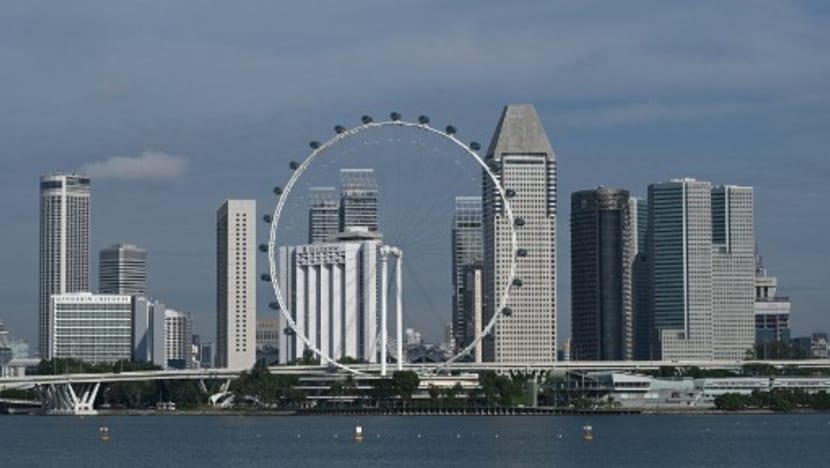Singapore's core inflation up 1.6% in November

A general view shows the skyline of the financial business district in Singapore on Oct 20, 2021. (Photo: AFP/Roslan Rahman)
SINGAPORE: Singapore’s core inflation in November rose to 1.6 per cent on a year-on-year basis, up from the 1.5 per cent reported in October, official data released on Thursday (Dec 23) showed.
Core inflation excludes accommodation and private transport costs. These items are excluded as they tend to be significantly influenced by supply-side administrative policies and are volatile, said the Monetary Authority of Singapore (MAS) and the Ministry of Trade and Industry (MTI).
The increase in core inflation primarily reflected an increase in services inflation, said MAS and MTI in a joint release.
The headline consumer price index, or overall inflation, jumped to 3.8 per cent year-on-year in November - compared with 3.2 per cent in the previous month.
"The uptick was driven by stronger private transport inflation, in addition to higher core inflation," said the authorities.
Private transport inflation rose 17.9 per cent in November, up from 14.3 per cent in October, on the back of a larger increase in car prices.
Electricity and gas costs saw a larger increase, from 7.8 per cent in October to 10 per cent in November, primarily due to a decline in the number of households on standard price plans for electricity.
The exit of retailers under the Open Electricity Market (OEM) led to affected household accounts being transferred to SP Group.
“As standard price plans provided by retailers under the OEM are generally priced lower than the regulated tariff charged by SP Group, the decline in the number of households on OEM standard price 3plans contributed to the steeper increase in electricity costs,” MAS and MTI said.
Services inflation inched up to 1.9 per cent in November from 1.6 per cent the previous month, on account of a faster pace of increase in airfares and a smaller decline in telecommunication service costs.
Accommodation inflation also rose slightly from 2.5 per cent in October to 2.7 per cent in November as housing rents increased more rapidly.
Food inflation rose to 1.9 per cent in November from 1.7 per cent in October, on the back of higher non-cooked food inflation, while the inflation of prepared meals remained unchanged.
The cost of retail and other goods fell more sharply, from -0.4 per cent in October to -0.9 per cent in November, due to a larger decline in the price of clothing and footwear.
INFLATION OUTLOOK
Rising import and labour costs, together with the recovery in domestic economic activity, will support a "steady increase" in core inflation in the quarters ahead, said MAS and MTI.
Core inflation is projected to average 0.9 per cent in 2021 as a whole, and increase further to 1 per cent to 2 per cent in 2022.
“Given the sharp rise in private transport costs in recent months due to higher COE premiums, CPI-All Items inflation is expected to come in at 2.3 per cent this year,” the authorities said.
“In 2022, CPI-All Items inflation is forecast to average 1.5 per cent to 2.5 per cent. Amid construction delays, accommodation inflation should remain firm and continue to support CPI-All Items inflation in 2022.
“Meanwhile, private transport inflation is likely to moderate next year on the back of a slower pace of increase in COE premiums and petrol costs."
Domestically, MAS and MTI expect the labour market to "become more entrenched" with the easing of COVID-19 restrictions and a pickup in economic activity.
Wages have increased and are anticipated to continue to rise at a steady pace as slack in the labour market dissipates, they added.
"As the domestic COVID-19 situation stabilises, consumer demand should strengthen, with the possibility of a greater pass-through of accumulating business costs to consumer prices," the authorities said.
Global inflation “remains elevated” and is likely to persist for some time, MAS and MTI said.
"Notably, firm crude oil prices are supported by tight supply conditions, as well as firm demand," they added.
"The supply-demand mismatch in various commodities and goods markets, as well as bottlenecks in global transportation, are likely to continue in the near term.
"As the global and regional economic recoveries progress, underlying inflation in Singapore’s major trading partners is also projected to gradually increase."
















